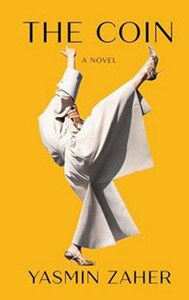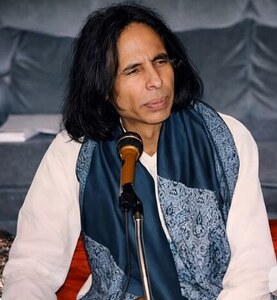AHFAZUR Rahman’s 590-page tome is the second book to come out in recent months on Pakistani journalists’ struggle for press freedom. The one to hit the market earlier was Dr Tauseef Ahmad Khan’s book (Azadi-e-Sahafat ki Jidojahad mein Akhbari Tanzeemoon ka Kirdar). There is a major difference, though: Dr Khan’s work covered the press scene in South Asia since the days of the East India Company, while Rahman’s book concerns itself solely with the 1977-78 movement. The styles also differ.
While Dr Khan wrote prosaic Urdu, Rahman’s diction has a literary touch, perhaps justifiably, because the book is a memoir, with the author himself in the mainstream of the struggle launched by the Pakistan Federal Union of Journalists (PFUJ) led by Minhaj Barna and Dawn’s Nisar Usmani. The challenge was tough, because Gen Ziaul Haq’s pseudo-religious barbarism, supported and applauded by the right-wing claque, had held Pakistan firmly in its iron grip.
The movement was countrywide, and newsmen were the spearhead, but vigorous support also came from organisations representing students, workers and peasants. The number of those arrested stood at 218, including women. Among them were: Tamkanat Ara, Asifa Rizvi, Hameeda Ghangro, Nasreen Zehra, Farkhanda Bukhari and Lalarukh Hussain. The last one, Hussain, was arrested by the police after they broke her bedroom window. Besides, three women courted arrest in Lahore (Elizabeth Khalid and Rosy Majeed, both in the Punjab University’s journalism department, and Enver Sultana of daily Sadaqat, Lahore).
There is a comprehensive list given of those hauled up, those who were expelled from Punjab, and the details of the punishment meted out to journalists, newspapers, weeklies and periodicals (closure, fines and censorship). The newsmen convicted included Saleem Asmi (later editor of Dawn, then in The Pakistan Times: nine months of hard labour and a fine of Rs 1,000), Aziz Siddiqui (later editor of the The Pakistan Times: six months, Rs 5,000), Shafqat Tanvir Mirza (six months, Rs 5,000), Usmani (one year, Rs10, 000) and Abdul Hameed Chhapra (six months, Rs 2,000) and countless others. The names of those sentenced to whipping by a military court on May 13, 1978, must be recorded for history — Khawar Naeem Hashmi of Musawaat, Lahore (four lashes and six months of rigorous imprisonment or RI), Nasir Zaidi of Nawa-i-Multan, Multan (five lashes, one-year RI), Iqbal Jafri of The Sun, Karachi — not to be confused with the BBC correspondent, the late Iqbal Jafri (five lashes, one-year RI) and Masoodullah Khan of The Pakistan Times, Rawalpindi (five lashes, one year RI). For ‘proper’ whipping, marks were made on the journalists’ backs, and then the whipper had a go. (The doctor didn’t allow Masood to be whipped because of his limp. He rued the exemption, “Yaar, mainoo vi koray maro na!”)
Ahfaz is the right person to record the saga, because he was in the midst of the struggle when the police had orders from a brutal military junta and a frightened and politicised bureaucracy to humiliate and torture peaceful journalists. Ahfaz was general secretary of the Karachi Union of Journalists and secretary general of the joint committee that acted as a coordinating body between the PFUJ and the All Pakistan Newspaper Employees’ Confederation. He went underground, was arrested and remained in prison from December 1977 to April 1978.
Ahfaz becomes emotional as he recalls the suffering of fellow journalists, many of them now dead, and often has recourse to Urdu poetry to heighten the press workers’ persecution, arrest, torture and whipping ordered by the military court. Ahfaz feels many books, including Zamir Niazi’s celebrated The Press in Chains, didn’t do justice to the long and tenacious struggle waged by journalists in 1977-78 over the Musawaat issue. He harshly criticises Niazi for factual mistakes and, most unfortunately, suspects his motives.
The author forgets that the information available to him was not available to Niazi. He could not, for instance, know that Ahfaz was chief of the underground cell directing the movement. To reinforce his point that the Niazi book didn’t adequately cover the 1977-78 strike, especially the torture suffered by the activists and the sabotage of the movement by those Ahfaz calls “traitors” — a reference to those journalists who collaborated with the Zia government — the book includes some first-hand accounts of the ordeals the arrested press workers had to go through.
The book, thus, includes write-ups by those who suffered at the hands of police and prison officials. These included: Zia Ahmed Awan (who was immersed in water with electric current released), Shabbar Azmi, Naeem Hashmi (who was whipped), Masood Qamar, Muhammad Zahid, Farhad Zaidi, Zafar Qureshi, Ali Ahmad Khan, Altaf Siddiqui, Nasir Zaidi, Sabihuddin Ghousi, Hasan Zaheer and many others.
The article by Mohammad Irfan of Dawat-e-Amal of Gujranwala epitomises the torture which many of his colleagues were subjected to. He was blindfolded, handcuffed and kicked to extract information as if he was a spy working for a foreign government. “Where is Barna?” he was asked. (Barna was already in prison). “Who wrote the placards?” When he replied he himself, blows rained on his face. His lips bled as policemen jumped on his body, hung him upside down and whipped him, threatening that he would die unless he “cooperated”.
Ali Ahmad Khan’s feature is a unique blend of sarcasm and irony with a touch of humour that gives the reader a vivid description of conditions in Pakistani prisons, the jail staff’s brutality, the incredibly wide variety and ingenious ways of causing harassment and physical discomfort, if not outright torture, and — despite all this — the journalists’ sangfroid. It also reveals the imprisoned newsmen’s ability to cock a snook at their tormentors by managing to have a laugh while displaying grit.
The book rightly focuses on Barna’s fearless personality, the quality of his leadership, his proverbial honesty and utter sincerity to the cause, his refusal to be cowed down by the bullies, led by Gen Zia’s information secretary Mujibur Rahman, and the success which the movement attained after the arrested journalists were released and those who were dismissed got their jobs back. The book contains letters written by Barna to some newspaper tycoons and the facsimiles of his letters from various jails to his colleagues and friends. The book also dwells on intrigues from within against the movement. Such was the tenacity displayed by the journalists that the Times of India remarked that Indira Gandhi could not have imposed her emergency rule if India had an organisation like the PFUJ. The book is a an important addition to the meagre literature available on the fourth estate in Pakistan.
Sub Se Barri Jang
(JOURNALISM)
By Ahfazur Rahman (in cooperation with Iqbal Khurshid)
ISBN 978-9697546046
Raktab Publications, Karachi
Publisher’s phone number: 0300-2393143
590pp.


































